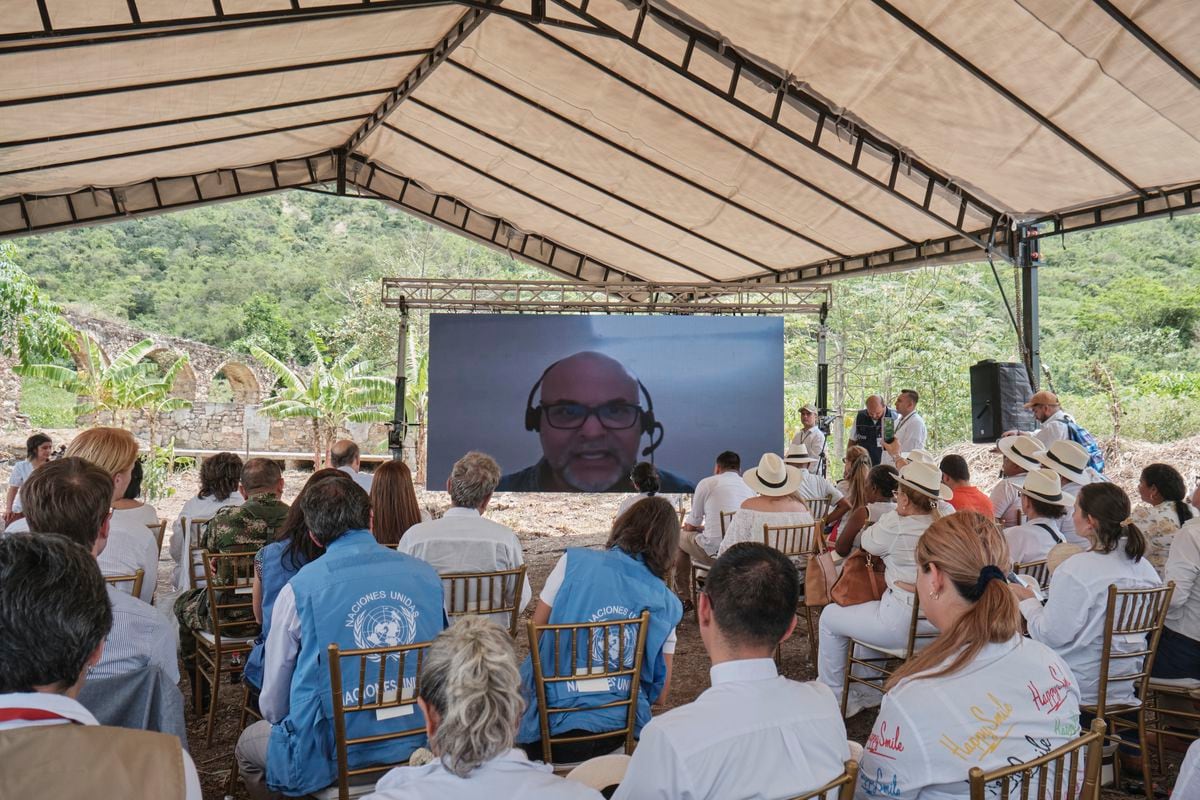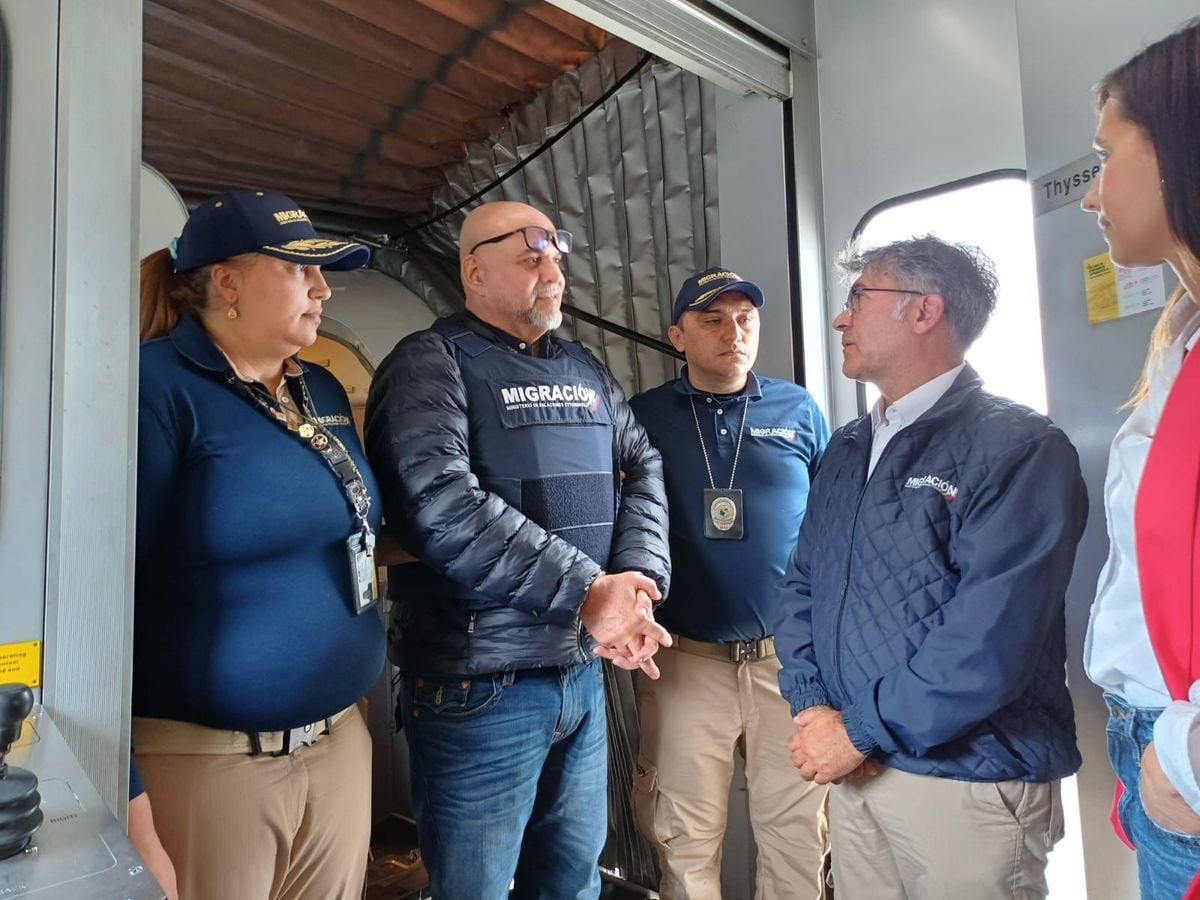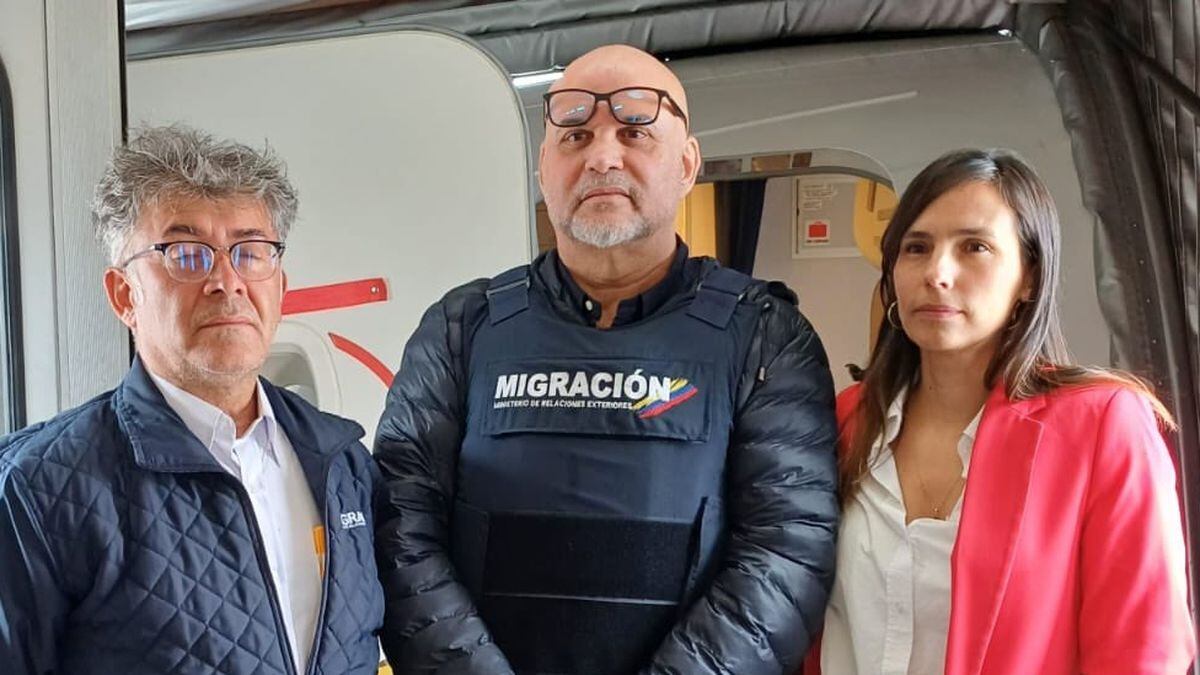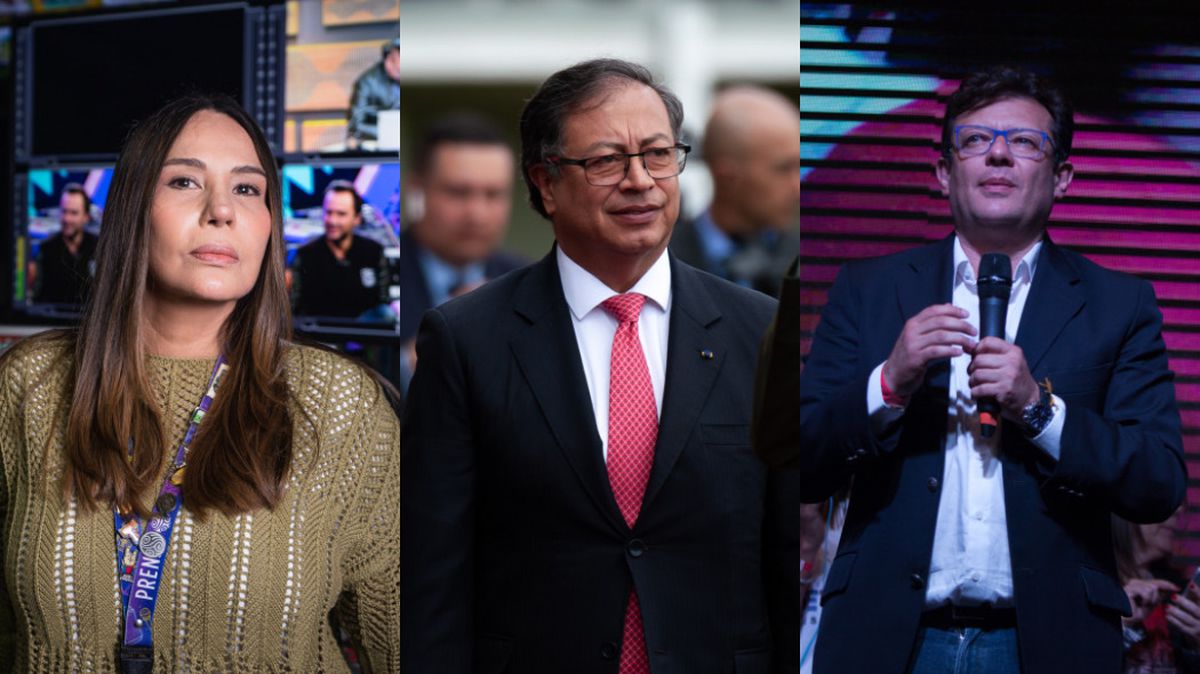In December 2006, Salvatore Mancuso, one of the bloodiest protagonists of the conflict in Colombia, had his first public version before the Colombian Justice. He arrived from the maximum security prison of Itagüí to the Justice building of Medellín. He wore a striped shirt covered by a black vest, his hands cuffed and his inevitable red watch. He spoke for a day, mentioning dead soldiers and some general information that upset the victims. That hearing was eventually postponed because Mancuso said he didn't feel well emotionally and needed time to document specific cases.
It has been 17 years and a long time to gather timely information that unravels the role of other sectors in the war that has left millions of victims. But this time Mancuso must go further. From a detention center in Georgia, United States, he is playing his last chance to enter the Special Jurisdiction for Peace (JEP) if he wants to receive benefits in this transitional justice and, as he said, recover his "civil and political rights." Mancuso will not be able to repeat what is already known.
For four days before the JEP "he will have to overcome the threshold of truth reached in 18 years of investigations," reports the jurisdiction. And he will have to provide new information about his role as a hinge between the paramilitary group he led and the high command of the Public Force. "Demonstrate that he was functionally and materially incorporated between 1989 and 2004 to the Public Force."
This Wednesday, an older Mancuso, seasoned in audiences, dressed in a white shirt and beige jacket over his shoulders, has begun to relate the relations between paramilitarism and the Army and the Police. The former commander of the United Self-Defense Forces of Colombia, who was extradited to the United States in 2009 by former President Álvaro Uribe, has mentioned facts already known, such as his relationship with Major Walter Fratini, deceased, or the alleged request of politicians such as Francisco Santos to create paramilitary blocs.
However, in the course of the morning, he mentioned new names of high-ranking law enforcement officials, including members of the National Police and the National Navy, who not only helped expand paramilitarism but also participated in extrajudicial executions. "Colonel Raúl Suárez of the Police gave us information asking that some people be killed, such as some indigenous leaders of the cabildo mayor of the Zenúes in San Andrés de Sotavento. This is how Julio Clemente Polo and Manuel Atencio Suárez were murdered," he said.
"In the operations we were doing, if we handed over guerrilla casualties to the Army in combat and, if they had better weapons, we exchanged them for our weapons," Mancuso mentioned as one of the benefits of the relationship with the public force.
Mancuso ratified the role of the Convivir, legal civil associations for citizen protection that became armed, in the expansion of paramilitarism, something that was always denounced and even today many deny. "The Convivir was the way in which illegality was given legality. I was in command of a special group that included members of the Army and Police to kill civilians they pointed out as guerrillas." On the advice of Pedro Juan Moreno in the creation of Convivir, Mancuso explained that "the Secretary of Government of the then governor of Antioquia, Álvaro Uribe Vélez, told us how we were going to get weapons through those Convivir." He added that the paramilitaries were trained directly by members of the security forces.
The candidate to enter the JEP spoke of 70 special operations groups made up of public forces and self-defense members and said that he was "de facto commander" of a special group of the 11th Brigade, after Fratini's death. "They gave us lists and then we would go and beat the houses and kill them because they told us they were guerrillas." "Look at how they called me to plan operations, how I commanded a direct operation against subversion and how, irregularly, within those operations we accused the peasants of being guerrillas because of the marks on their backs," Mancuso said when talking about the release of two Swedish citizens.
Mancuso has been accused of directing 139 massacres in which 800 people were killed, among many other crimes. The Army participated in several of them, he said Wednesday. "For example, the massacre of Pichilín. We met with Major Parra, who was commander of the Sijin of Sincelejo," he told an audience of victims in Córdoba.
In addition to massacres, together with the military, they participated in kidnappings and false positives. One of the most striking cases was the kidnapping of Leonor Palmera, the sister of Ricardo Palmera, leader of the extinct FARC and known by his alias Simón Trinidad. Mancuso assured that the Convivir under his command had the support of the Army, through General Iván Ramírez Quintero, and the Police, which escorted them. "There is more telling that there is not," said the former paramilitary chief.
The murders known as false positives, which pose the greatest embarrassment to the Colombian Army, also had space on the first day of hearing. Mancuso said his armed group received information from the Armed Forces, lists of people they were supposed to kill. Then, the authorities presented cases as combat deaths. "José Miguel Narváez (former director of the DAS, determinant of the murder of journalist Jaime Garzón) told us that an ideologue did more damage than 100 guerrillas at a rage. We received those reports as an incontrovertible truth. And that automatically made people a military target and the death penalty."
"There were many, your honor," Mancuso replied when JEP magistrate Heydi Baldosea asked him about false positives. "Commander Camilo, Armando Pérez, in Catatumbo, in 1999, executed four victims: Néstor Campo Sánchez, Alfonso Álvarez, Diomar Barros Vega and an unidentified person. They were handed over to Lieutenant Daladier Rivera Jácome and he legalized them as combat casualties." Mancuso also reported the participation of businessmen in the expansion of paramilitarism, the purchase of weapons and the creation of armed groups. "The people overwhelmed by the guerrillas asked us to create self-defense groups," he reiterated.
Magistrate María del Pilar Valencia asked Mancuso to give details about the murder of leader Kimy Pernía Domicó and other state crimes. Mancuso mentioned the case of Alonso Domicó Jarupia: "That was an indigenous leader that we assassinated with information from the Army"
The JEP, created within the framework of the peace agreements with the extinct FARC guerrillas and the State, investigates the crimes of former guerrilla combatants and members of the Public Force. But it also grants legal benefits to the so-called civilian third parties (financiers, public officials or businessmen) who participated in the armed conflict, take advantage of it and contribute to truth and reparation.
Mancuso has insistently asked to enter the JEP and this Wednesday began his litmus test. This Thursday he will have to talk punctually about joint operations between paramilitaries and public forces, which could splash active and retired soldiers. And next week he will have to provide information on alliances between officials, civilians, paramilitaries, and the security forces, as well as the leaking of information from the DAS for counterinsurgency purposes to the paramilitaries. Then, the JEP will have to contrast the information provided by Mancuso and determine if he can benefit from transitional justice.
Subscribe here to the newsletter of EL PAÍS about Colombia and receive all the informative keys of the current situation of the country.


/cloudfront-eu-central-1.images.arcpublishing.com/prisa/YOIAB3IZVZENPLEXJ3PCP7HOI4.jpg)

/cloudfront-eu-central-1.images.arcpublishing.com/prisa/62WTZ2YGTKOGTJ6OXJW67JCCME.jpg)

/cloudfront-eu-central-1.images.arcpublishing.com/prisa/2AYD5L6JMJAJ7F7KWQUHPVVVR4.jpg)

/cloudfront-eu-central-1.images.arcpublishing.com/prisa/SHT4AVOR7JHSTOWVLOM26IFYZI.jpg)
